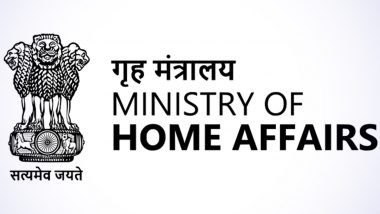Silchar, August 14: On August 14, 2024, 50-year-old Dulon Das, whose family had migrated to Assam's Silchar from Sylhet in Bangladesh, became the first person to get Indian Citizenship through the Citizenship (Amendment) Act (CAA). His citizenship was confirmed after he received an e-mail from the Ministry of Home Affairs, India, approving his application for Indian citizenship. He is to collect his citizenship certificate from the Regional Passport Office in Guwahati, Assam.
Dulon Das, a Hindu man from Borogram in Bangladesh’s Sylhet district, has been living in Assam since June 5, 1988. Das, who came to India more than 35 years ago, married an Assam-based woman and has two sons with her. It has been learnt that two siblings of Dulon Das are also in the process of applying for citizenship under the CAA.
How did Dulon Das acquire Indian citizenship?
Dulon Das filed his application for the citizenship of India on April 1, 2022, under Section 6B of the Indian Citizenship Act of 1955. As per the provisions of the Citizenship (Amendment) Act of 2019, India grants Indian citizenship to persecuted minorities who are Hindus, Sikhs, Buddhists, Jains, Parsis and Christians from Afghanistan, Bangladesh and Pakistan, and who entered India on or before December 31, 2014. Will Repeal NRC, CAA if INDIA Bloc Voted to Power, Says Mamata Banerjee at Lok Sabha Election Rally.
Dulon Das, ineligible to apply for the National Register of Citizens (NRC) since he could not establish a family tree of Indian citizens, was eligible for the grant, as he came to India post 1971. Das submitted a list of documents for verification for the application approval, including a land deed in the name of his father in Bangladesh from 1986, his landed property proof in Silchar, a valid driving licence, permanent account number (PAN) card, Aadhaar card, and name on the Indian voters’ list. Dharmananda Deb, Das' lawyer said that out of the six applicants including Das, two have withdrawn and the remaining are to get Indian citizenship.
What is CAA?
The Citizenship (Amendment) Act, 2019 was passed to hasten and simplify the citizenship process for persecuted minorities who migrated from Afghanistan, Pakistan and Bangladesh before December 31, 2014. Since the amended law categorically fails to mention any such relief for Muslim minorities from these countries, it received widespread protest across India for being discriminating. The CAA further proposes to reduce the required period of the migrants' residence in India for their naturalisation under the 1955 Act. CAA: 14 People Given Indian Citizenship As Centre Issues First Set of CAA Certificates.
Although the Citizenship Amendment Bill was passed on December 11, 2019, it denies citizenship to refugees with criminal records and to those who immigrated to India after December 31, 2014, whether legally or illegally. “The CAA of 2019 grants citizenship to eligible individuals with retrospective effect, deeming them Indian citizens from the date of their entry into India. The CAA also closes any legal proceedings against them related to illegal migration or citizenship,” Deb told The Hindu.
(The above story first appeared on LatestLY on Aug 14, 2024 12:04 PM IST. For more news and updates on politics, world, sports, entertainment and lifestyle, log on to our website latestly.com).













 Quickly
Quickly





















